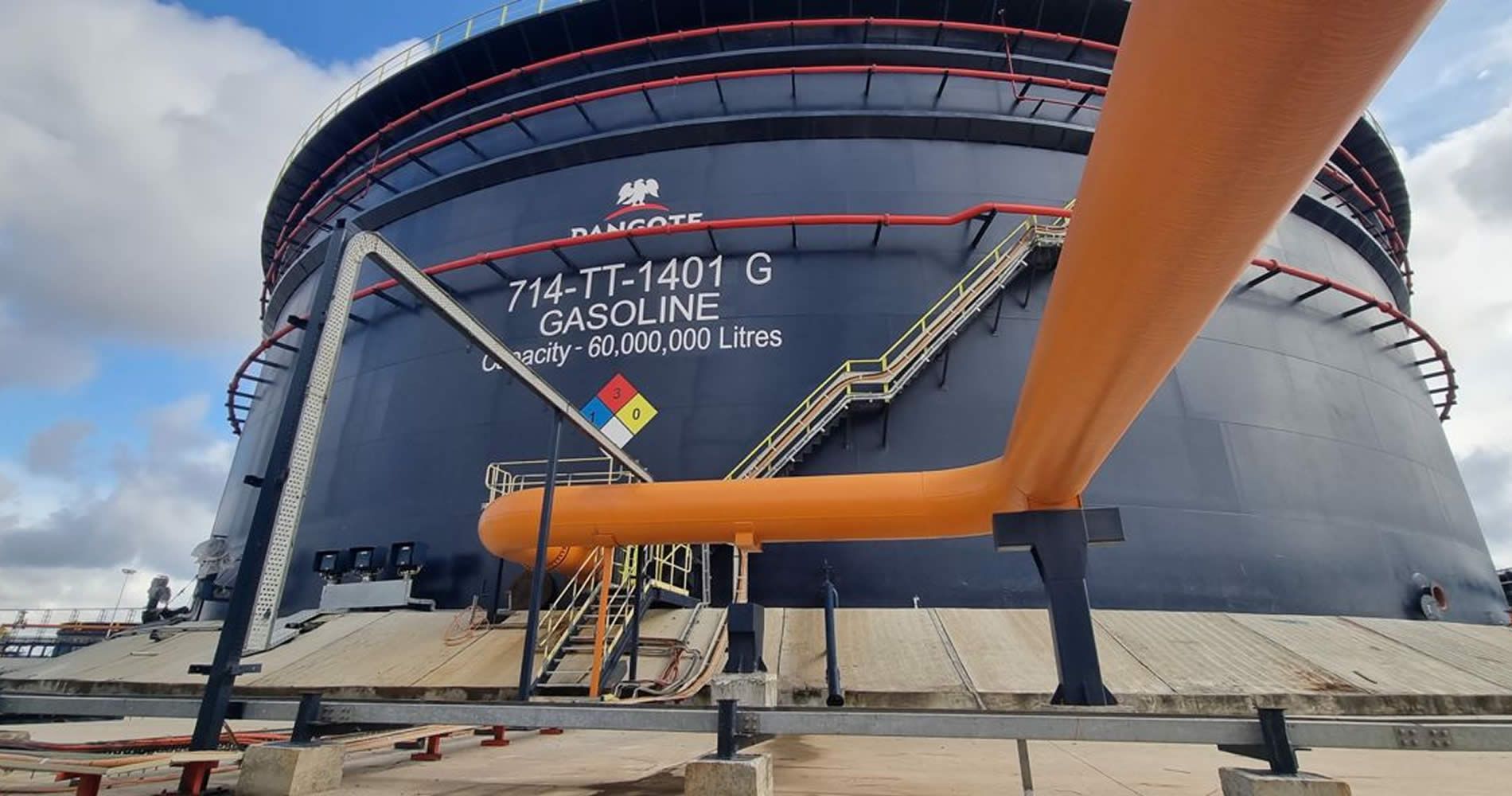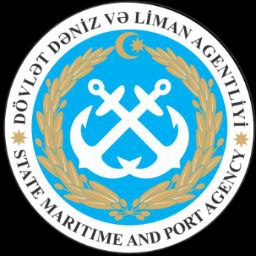By Ppulse Mix,Pulse Mix
Copyright pulse

Recent events and statements made it abundantly clear that the actions and threats issued by certain groups within Nigeria’s oil and gas industry are not borne out of legitimate concerns about unionisation. Rather, they constitute a calculated campaign of economic sabotage, orchestrated by vested interests who perceived progress as a threat to their entrenched positions.
From the outset, it has been evident that certain actors are intent on undermining the operations of the Dangote Petroleum Refinery, particularly the planned deployment of Compressed Natural Gas (CNG)-powered trucks for the distribution of fuel. This innovation has been widely recognised as a transformative step towards Nigeria’s long-sought goal of energy self-sufficiency.
We are not surprised by the disingenuous intervention of the Depot and Petroleum Products Marketers Association of Nigeria (DAPPMAN), which appears to be a face-saving attempt to distract from the real issues at hand. In time, Nigerians will come to see clearly the individuals and interests behind this concerted effort to derail a project of national importance.
DAPPMAN’S claims regarding the quality of its imported petroleum products are contradicted by established facts. In January 2022, the Nigerian National Petroleum Company (NNPC) reported that one of DAPPMAN’s members had supplied petrol containing over 15% methanol, well above acceptable limits (Methanol is not standard in refinery practice, but some blenders use it to artificially raise octane levels beyond the anti-knock threshold, a questionable and unsafe approach). The result was widespread engine damage for thousands of end users. Yet, no transparent government inquiry or independent investigation was ever conducted to determine the source, intent, or full impact of the adulterated fuel.
It is easier for DAPPMAN and its affiliates to make such claims knowing that the regulatory authority lacks a single, verifiable, government-owned laboratory in Nigeria capable of testing fuel to international standards. This regulatory gap continues to undermine enforcement of Section 317(11) of the Petroleum Industry Act (PIA), which mandates a sulphur content limit of 50 parts per million for all petrol consumed in line with ECOWAS standards. We are fully aware of the numerous conspiracies surrounding the certification of petroleum products imported into Nigeria. The so-called certificates of quality, if subjected to an independent forensic audit, would not match up to industry standard which forms the basis for actual pricing template of the products.
DAPPMAN also contends that the Dangote Refinery supplies only 35% of national demand. Unfortunately, the regulators have failed to publish transparent or independent audited daily consumptions data, or to implement equalisation levies per litre. Without accurate figures, effective planning and fair quota allocation as required under Sections 317(7) and (8) of the PIA remain elusive. An independent forensic audit is urgently required.
Before the advent of higher-quality domestic fuels from the Dangote Refinery, Nigerians endured scarcity, product adulteration (a major cause of cancer ravaging many families today), and lasting engine damage, often without accountability. This latest narrative around unionisation is merely a cheap ploy, an act of desperation by a group resisting reform. The reality is clear, DAPPMAN should adapt to the new energy landscape or mobilise capital, build a refinery and compete.
It is incorrect to claim that the price of petrol in Togo is lower than in Nigeria. A straightforward check reveals that the average pump price in Lomé stands at approximately 680 CFA francs per litre, equivalent to N1,826. This figure reflects the very scenario that DAPPMAN and its affiliates appear to advocate for in Nigeria. The Dangote Refinery has positioned Nigeria as a primary source of affordable petrol feedstock for West Africa, despite the refinery importing over 60% of the crude oil it processes.
It is increasingly evident that DAPPMAN and some of its members are disproportionately focused on the importation of refined products even admitting to round-tripping, whereby petrol produced by the Dangote Refinery is re-imported from Togo into Nigeria at a markup. Another hole in their narrative of being the major supplier of petrol in the country. What, then, is the business rationale behind this practice, especially when considering the substantial additional cost of transporting petroleum products from Lomé to Lagos – costs that run into billions of Naira?
If their true intention is to serve the Nigerian domestic market, why not join the growing list of local partners of the Dangote Refinery? These partners, in addition to receiving high-quality products, benefit from volume-based discounts, credit facilities and logistics support, all designed to enhance local availability and affordability of petroleum products for the Nigerian people, at a recommended rate by all parties.
It is important to distinguish between the pricing at the Single Point Mooring (SPM) and the Gantry. While smuggling products through the SPM is relatively easier, transporting them via land borders is far riskier and more complex.
The reality is that for some operators, the business has never truly been about delivering petroleum products to Nigerian consumers. Instead, it revolves around arbitrage opportunities, where they can easily triple the value of the products by diverting them to more lucrative markets in the sub-region.
These inflated volumes were factored into the justification for subsidy claims. At one point, Nigeria’s daily consumption was reported to be as high as 93 million litres, a figure grossly overstated, as the actual consumption is less than half that amount. A figure that was kept high in the heat of COVID-19 when there was hardly movement.
Beyond the subsidy claims, these exaggerated volumes have also been used to underpin crude swap agreements. If Nigeria is said to consume 93 million litres daily, it logically follows that an equivalent volume of crude must be supplied in the swap deal. Unfortunately, much of this crude is then diverted and resold for the personal gain of vested interests.
Nigerians would be astonished to learn the extent of fraud within this sector and the scale at which the country has been exploited and raped by these entrenched cartels. It is only a matter of time before the full truth comes to light. We challenge DAPPMAN to support an independent forensic audit of their import records over the past five years, including the payment of equalisation funds to determine whether these figures align with the alleged daily consumption levels. Similarly, we call for an audit of the NMDPRA’s revenue records per litre, particularly in the post-subsidy era, to verify if they reflect the claimed national consumption volumes.
DAPPMAN members such as MATRIX, AA RANO, AYM SHAFA, NIPCO and others should also publish their financial statements for the past ten years, during which time Nigeria has been systematically exploited. Let the relevant tax authorities conduct a forensic audit of their tax compliance to determine whether what was paid, if anything, corresponds with the volumes they claim to have supplied. Unfortunately, the real objective appears to be less altruistic. The strategy remains the same, that is, purchase from the Dangote Refinery at discounted rates under the guise of domestic supply, then divert those products to neighbouring countries where pump prices are nearly double. This well-worn tactic has drained Nigeria’s resources for years, and the Dangote Petroleum Refinery will not be complicit in such schemes.
If the Dangote Refinery were to load 40 million litres of PMS and 15 million litres of AGO (diesel) via the Single Point Mooring (SPM) at an extra cost of N75 per litre in handling charges, it would amount to approximately N1.5 trillion annually in avoidable charges.
By contrast, utilising gantry loading and direct trucking would eliminate these costs entirely, resulting in substantial savings that could be redirected towards critical infrastructure investments.
Losing N75 per litre to intermediaries who cannot guarantee that the products will be delivered to the Nigerian consumer is not a viable option. Rather than enabling such exploitation, we are committed to partnering with credible distributors and expanding humanitarian outreach, ensuring that petroleum products get to the Nigerian people transparently and affordably.
The world-class Dangote Petroleum Refinery is a Nigerian refinery, built to serve Nigerians first. It will operate as such. It cannot and will not be reduced to a mere supply point for offshore profiteering. Importing a product that is already produced domestically, solely for arbitrage, is not only economically illogical but deeply exploitative. This is why we are pleading with the Federal Government to consider protection for the Nigeria’s First Policy. There is no doubt that Dangote Petroleum Refinery’s production exceeds Nigeria daily consumption, with surplus for exports to international markets, including the United States of America
It is regrettable that NUPENG has allowed itself to be weaponised by powerful oil import cartels that have consistently benefitted from Nigeria’s over-reliance on imported petroleum products, to the detriment of national growth and economic independence. The fact that NUPENG dismissed the refinery’s reduction of petrol prices as a “Greek gift,” and that DAPPMAN labelled the move “unpatriotic,” speaks volumes about their motives. Where is their own gift?
If, as they claim, it is cheaper to import than to refine domestically, why have these same players not voluntarily reduced prices ahead of the Dangote Refinery’s interventions? Nigerians can attest that price reductions only occur in response to the refinery’s actions. If their interests were truly patriotic, they would lead by example, not hide behind rhetoric while clinging to an outdated, exploitative model. Nigerians also deserve to know why these operators are alleging that our price reduction is anti-competitive and intended to drive them out of business, especially when they themselves have long claimed that importation is cheaper, even when it involves substandard products.
Let us not forget that when the Dangote Refinery entered the market and reduced diesel prices from N1,900 to N1,200 and subsequently to N1,000 to the delight of manufacturers, transporters and all Nigerians, these same groups attempted to frustrate it, lobbying against the price reduction and petitioning the President. Rather than championing affordable energy, they erected obstacles to it.
These are the same actors who were previously implicated in the infamous fuel subsidy scandals that defrauded the Nigerian state of billions of dollars over many years. Operating under the guise of meeting national demand through fuel importation, many of these entities submitted false claims, inflated delivery volumes, or collected subsidy payments for products that were never delivered. According to the 2012 House of Representatives probe, over N1.7 trillion was fraudulently claimed by marketers under the pretext of fuel importation.
In numerous cases, subsidised fuel intended for Nigerian citizens was illegally diverted and sold across borders at significantly higher prices. While a select few amassed great wealth, millions of Nigerians endured fuel shortages, inflated costs, and economic hardship.
The emergence of the Dangote Refinery directly threatens this entrenched network. Their hostility is, therefore, not surprising. It is a defensive reaction to the dismantling of a deeply profitable but unsustainable status quo. Their interests do not align with those of Nigerian workers or the wider public, but with the preservation of narrow, self-serving economic gains.
Even with the commissioning of the refinery, a landmark national achievement, these same groups have flooded the market with imported products in a deliberate attempt to undermine the refinery’s stability. They issued instructions to members to boycott its products, and have penalised those who defied them by labelling them traitors. They have leveraged their depots, trucking fleets, and retail networks to sustain fuel importation and have shown a willingness to obstruct any initiative, such as the deployment of CNG-powered trucks, that threatens this model.
The Dangote Refinery would have been enthusiastically embraced by these interests had it agreed to sustain their preferred model. Such a demand, had it been accepted, would have betrayed the aspirations of millions of Nigerians who have long called for domestic refining, job creation, and energy sovereignty.
We are not oblivious to their multifaceted strategies aimed at crippling the Dangote Petroleum Refinery. These strategies mirror those that led to the eventual collapse of Nigeria’s government-owned refineries. We urge Nigerians to be vigilant, as further acts of economic sabotage may be orchestrated in the coming weeks.
One of their most telling frustrations has been the failure to plant internal collaborators within the refinery, specifically through demands that only drivers from a particular union be employed. Let it be clearly stated: this dispute was never about the right to organise or to unionise. It has always been about control, coercion, not collaboration. And when the attempt to influence operations from within failed, the campaign to destabilise from the outside intensified. We anticipated these manoeuvres. We remain vigilant. And we are confident that Nigeria’s security architecture is alert to the evolving situation and fully prepared to protect this vital national asset.
Amazon has successfully built a vast and independent delivery network, enabling the company to manage a significant portion of its own last-mile logistics. This allows packages to be dispatched directly from local Amazon facilities to customers’ doorsteps, substantially reducing reliance on third-party carriers such as USPS, UPS, and FedEx. The strategy has afforded Amazon greater control over delivery times, operational costs, and service efficiency, while significantly enhancing the overall customer experience.
To achieve this, Amazon has invested tens of billions of dollars into developing its in-house logistics infrastructure with some estimates placing the figure at over $23 billion. The company’s logistics network includes a growing fleet of delivery vans and electric vehicles, as well as robotics, long-haul trucks, trailers, and aircrafts.
Amazon Logistics was officially launched in 2018, and notably, its entry into the logistics space was not met with resistance or accusations of monopolistic behaviour. There were no strikes from UPS, FedEx, or labour unions. Major retailers such as Walmart, JCPenney, and Macy’s instead responded by remodelling their business strategies to adapt to the new logistics landscape. Rather than oppose the move, these players returned to the drawing board, developed new strategies, and adapted their business models to reduce their dependence on Amazon as a dominant client. Business continued as usual — competition, not obstruction, prevailed. DAPPMAN should focus on reinventing its strategies rather than resorting to subterfuge and unpatriotic actions.
In light of this global precedent, the establishment of an in-house logistics division to reduce dependency on third-party carriers for fuel distribution in Nigeria is not simply a matter of strategic choice, it is a national imperative. Given Nigeria’s long-standing challenges with fuel scarcity, logistical inefficiencies, and systemic sabotage by entrenched interests within the petroleum supply chain, this move is vital. We invite the media to independently examine our loading records. Most of the trucks that DAPPMAN and its affiliates are attempting to impose on us are not roadworthy, posing significant safety risks to lives, property, and the environment.
For the Dangote Petroleum Refinery which has faced persistent, coordinated opposition from legacy importation cartels, the ability to ensure appropriate distribution channels is essential for ensuring uninterrupted, efficient, and equitable supply across the country.
What is required is a network of efficient and accountable retail outlets, not a system dominated by exploitative intermediaries who stockpile fuel and inflate prices at the expense of the Nigerian people.
The Dangote Refinery has never claimed to be a singular solution to Nigeria’s energy challenges. In fact, our emergence is helping to open up the sector, with more refineries now coming on stream. DAPPMAN is welcome to join the ranks of refinery owners, partner with any of the emerging facilities, or even explore collaboration with the Dangote Refinery, should they be genuinely interested in contributing to the industry’s growth.
However, the impact of the Dangote Refinery is already evident with no fuel scarcity, stable pricing, increased local value addition, and the creation of a platform for broader industrial growth. Both Nigerians and international observers can clearly see the shift from a dependence on imports to a growing culture of domestic productivity and self-reliance.
We remain open to working constructively with all legitimate stakeholders-Government, Regulators, Civil Societies, and Labour organisations to ensure that reforms in the sector are fair, inclusive, and sustainable.
As the largest single-train refinery in the world, the Dangote Petroluem Refinery is not just a Nigerian asset, it is a continental game-changer with the potential to positively influence energy markets across sub-Saharan Africa. Every country protects its domestic industry against dumping and Nigeria cannot be an exception. In Nigeria, even pure water producers are protected against dumping.
What is at stake is more than one project; it is the principle that industrial progress should not be obstructed by legacy interests who profit from dysfunction, who have failed to implement backward integration through import substitution for critical sectors that are strategic for the industrialisation of Nigeria. Industry Reforms must be protected and accelerated; and progress allowed to succeed.
We have more to say, this is a tip of the iceberg!
#FeaturedPost



